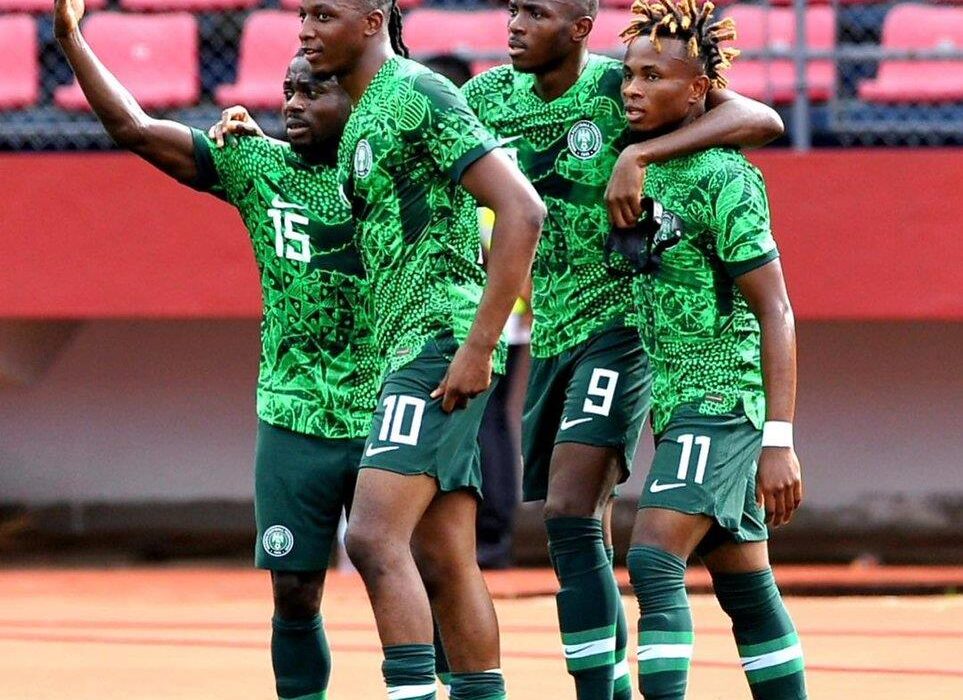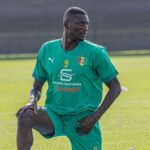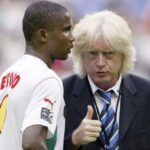Nigeria’s national football team, the “Super Eagles,” has historically relied on an astounding array of strikers to compose the ranks of their squad.
However, they find themselves with fewer options in midfield and defense, struggling for continental dominance leading up to the African Cup of Nations in Ivory Coast.
The haunting image of Victor Osimhen, plastic mask on his nose, pointing sadly towards the ground with his hands on his hips, lingers among Nigerian fans.
This followed their failure in the decisive clash against Ghana (0-0 in the first leg and 1-1 in the second), where, despite their array of attackers, the team failed to qualify for the World Cup in Qatar.
The Napoli striker, crowned the best player in the continent in 2023 by CAF, is now amidst a battle surrounded by talents like Samuel Chukwueze of AC Milan and veteran Ahmed Musa of Sivasspor in Turkey.
Yet, a setback hit as Victor Boniface of Bayer Leverkusen suffered an injury that will keep him out for several weeks.
Former Nigerian national team midfielder Jay-Jay Okocha may shed light on this.
He mentioned to various media outlets, “In Nigeria, every child wants to become a striker.
Maybe we are designed that way, producing many attackers.
If you look at Senegal, they produce more exceptional defenders.
Perhaps it’s in our genes.”
Okocha continued, “The fans might have a role in this.
We don’t forgive defenders who accidentally score an own goal, but we forgive the striker who misses a chance.”
Nigeria, once a force to be reckoned with, has not sparkled since 2018 and 2019 under German coach Gernot Rohr.
During this period, they reached the World Cup finals and the Africa Cup of Nations semi-finals with formidable figures such as Victor Moses, Kelechi Iheanacho, Ahmed Musa, and Odion Ighalo.
Formerly, the three-time Africa Cup of Nations winners (1980, 1994, and 2013) failed to qualify for the Africa Cup of Nations twice in a row in 2015 and 2017—a true disappointment for a nation that reached the final seven times and the semi-final 15 times.
Okocha warned, saying, “We should not rely solely on our strikers; we need balance in the team.
If defenders cannot achieve a clean sheet, we will struggle to win games.”
However, Nigeria now lacks players in midfield like John Obi Mikel, Sunday Oliseh, or Jay-Jay Okocha himself, and in defense, players like Taribo West or Joseph Yobo.
The comparison becomes harsher for the goalkeeping position, as Vincent Enyeama remains without a successor.
The blunder by first-choice goalkeeper Francis Uzoho, which cost Nigeria the World Cup qualification in the play-off against Ghana, also remains fresh in memory.
With limited options in other positions except for the attack, the Portuguese coach of Nigeria, Jose Peseiro, leading his first African national team, must also cope with the withdrawal of key midfielder Wilfred Ndidi of Leicester City due to injury.
He replaced him with Gent’s Hassane Yusuf, who has not played any international matches yet.
Only Joe Aribo, one of Nigeria’s standout players in the last Africa Cup of Nations, possesses enough experience in the midfield.
Even the forward selection, marked by the omission of Terem Moffi, one of the top scorers in the French league with Nice, raises questions.
The physical striker was initially overlooked until the injury to Boniface forced a reconsideration: Does Nigeria have too many attackers?












